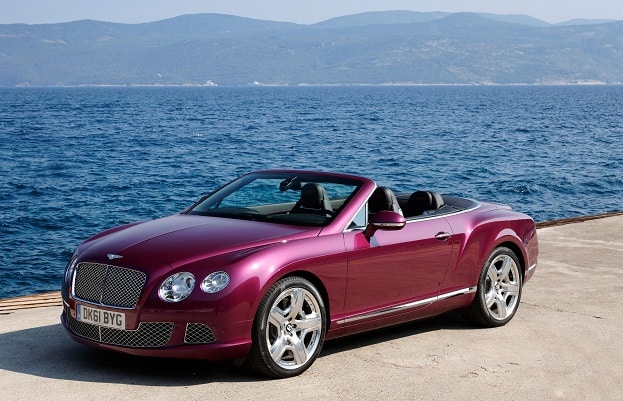Realizing that a large chunk of the world population is ill-prepared to afford a high-end luxury car, the niche sector of the automobile industry catering to wealthy, elite clientele continues to roll strong. Mercedes-Benz, Maserati, Audi, and Lotus have or are planning to expand their line-ups reacting to a marketplace that is still demanding premium vehicles. Surprising or not, many luxury car companies have enjoyed sales success despite turbulent global economics. With the end of year sales results being released for 2011, Volkswagen-owned British brand Bentley Motors published a sizable improvement in the super-luxury car business.
In the twelve months of 2011, Bentley Motors sold 7,003 cars to customers across the world. In only the month of December, Bentley recorded 1,069 cars were sold, becoming the luxury brand’s most successful month since 2007. In comparison, there were more Chevrolet Traverse crossover vehicles produced during the month of November than the entire year for Bentley. However, when the price tag of a new Bentley Flying Spur and Continental GT is roughly seven times higher than a Traverse, it is reasonable to consider the 7,000-plus sales tally for 2011 as a successful run.
Calculated as a 37 percent growth over the 2010 calendar year, the Crowe, England builder of exclusive automobiles enters the New Year basking in some big gains in key markets. In 2011, Bentley saw 1,839 products sold in the emerging economic hotspot. Only four years prior, China sales accounted for only 338 vehicles for the Volkswagen-owned Bentley division. Though Chinese customers have rapidly become a major supporter of the Winged ’B’ badge, the United States remains the most important single market for Bentley sales accounting for 2021 vehicles sold during the 2011 year.
A company that existed in the shadow of Rolls-Royce from 1931 until Volkswagen’s purchase in 1998, Bentley underwent the first major brand identification in over 65 years. Established in 1919 as a premium performance car company, the Bentley automobiles created after the Volkswagen ownership solidified was a 21st-century reinvention of the once-idolized brand. Reconnecting with sports car racing roots at Le Mans, Bentley Speed 8 prototype’s overall victory at the 24-Hour race in 2003 gave the British luxury car brand a chance to shake the once-stale image. In the 2003 year, sales for Bentley Motors amounted to a mere 1,017 cars. In a matter of 7 years, the sales for Bentley sales peaked at over 10,000 units for what was a record year in 2007.
Through 2011, the Bentley division consisted of the flagship Mulsanne, as well as the Continental series of two-door and four-door vehicles. Amounting to 2,404 (34 percent of the brand-wide sales in 2011), the reengineered Bentley Continental GT coupe was a big winner for the super-luxury division. For 2012, the Continental edition has increased influence with the addition of the GTC convertible and a more ‘affordable’ V-8 powered Continental GT coupe.
Wolfgang Dürheimer, the Chairman and Chief Executive of Bentley Motors, commented on the past year’s production numbers proudly, saying, “It has been a tremendously good year for Bentley. The dramatic sales growth reflects a global strength to the Brand and a recognition of the quality, craftsmanship, and engineering excellence of our cars.”
Information and photo source: Bentley Motors


